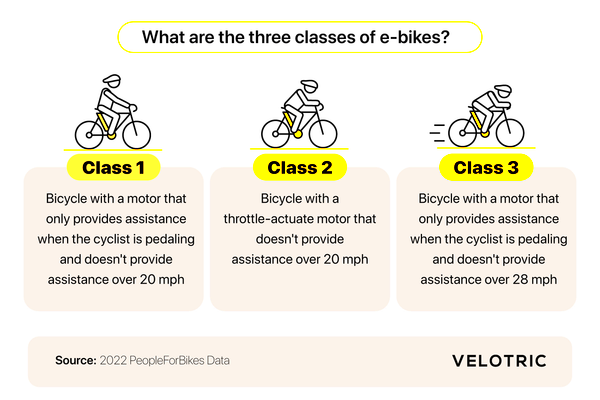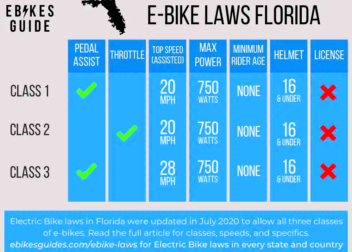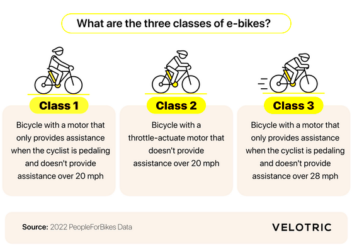Virginia Electric Bike Laws and Rules for Riders
Electric bikes, often called e-bikes, are becoming increasingly popular in Virginia. They offer a fun and eco-friendly way to get around. However, understanding the laws surrounding e-bikes is essential for riders to ensure safety and compliance. Virginia has specific regulations that define what constitutes an electric bike and outlines the rights and responsibilities of riders. This blog post will explore these laws, helping you navigate the exciting world of electric biking in Virginia.
Types of Electric Bikes in Virginia
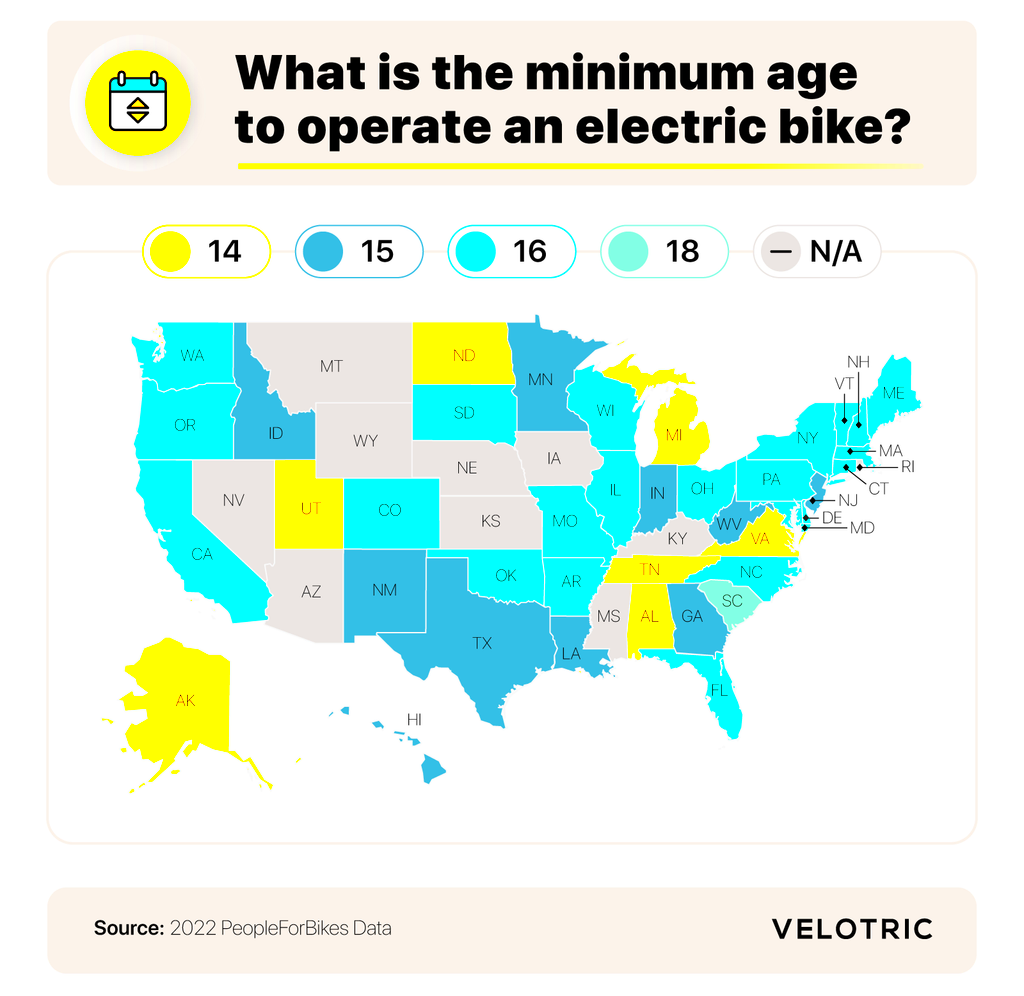
Virginia classifies electric bikes into three main categories based on their speed and the presence of a pedal-assist feature. Understanding these categories is vital for knowing where and how you can ride your e-bike.
- Class 1: These bikes are equipped with a motor that only provides assistance when the rider is pedaling. They have a maximum speed of 20 mph on flat surfaces.
- Class 2: This category includes bikes with a motor that can propel the bike without pedaling, also limited to a maximum speed of 20 mph.
- Class 3: These e-bikes assist the rider while pedaling but can reach speeds of up to 28 mph. They are subject to more restrictions compared to Classes 1 and 2.
It’s important to note that the classification affects where you can ride, so always check local regulations before hitting the road.
Legal Requirements for Electric Bike Riders
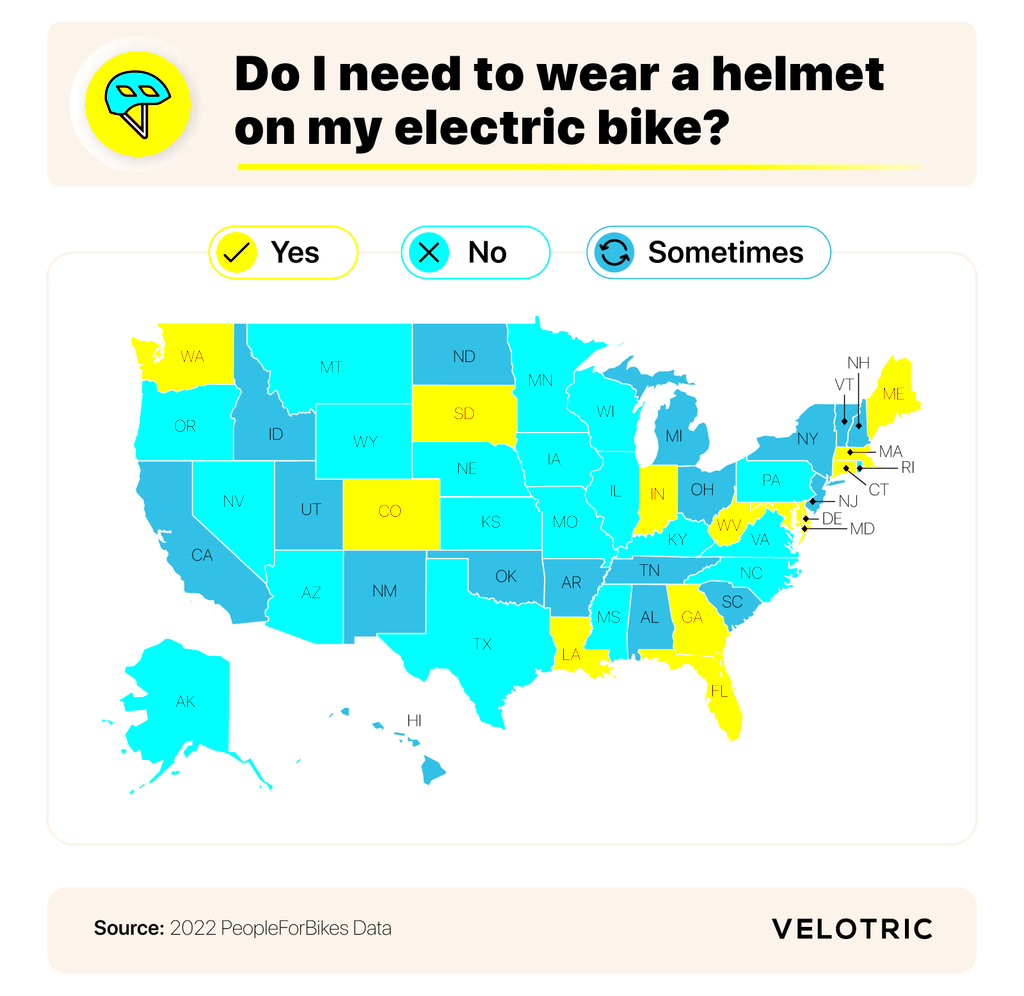
Riding an electric bike in Virginia comes with certain legal requirements that all riders must follow. Here are the key points to consider:
- Age Requirement: Riders must be at least 14 years old to operate a Class 3 e-bike. For Classes 1 and 2, there is no minimum age requirement.
- Helmet Use: While it’s recommended for all riders, wearing a helmet is mandatory for those under 14 years old riding any class of e-bike.
- Licensing: E-bikes do not require a driver’s license or vehicle registration, making them accessible for many riders.
- Operating on Roadways: Riders are allowed to use roads and bike lanes but must obey traffic laws just like any other vehicle.
- Sidewalk Use: The use of e-bikes on sidewalks may be restricted in certain areas, so always check local ordinances.
By following these legal requirements, you can enjoy your electric bike while staying safe and within the law.
Safety Guidelines for Electric Bike Use
Staying safe while riding your electric bike is crucial. Here are some essential safety guidelines to keep in mind:
- Wear a Helmet: Always wear a certified helmet, regardless of your age. It’s your best protection in case of an accident.
- Use Lights and Reflectors: Equip your bike with front and rear lights, especially if you ride at night or in low-light conditions. Reflectors are also helpful for visibility.
- Follow Traffic Laws: Obey all traffic signals, stop signs, and road markings. Remember, you’re treated like a vehicle on the road.
- Stay Alert: Keep an eye out for pedestrians, vehicles, and road hazards. Avoid using headphones while riding, as they can distract you from your surroundings.
- Practice Before You Ride: If you’re new to e-biking, practice in a safe area before hitting busy streets. Familiarize yourself with how your bike responds to acceleration and braking.
By following these safety guidelines, you can enjoy your electric biking experience while minimizing risks.
Where You Can Ride Electric Bikes
Knowing where you can ride your electric bike is essential for a smooth journey. Here’s a breakdown of where e-bikes are typically allowed:
- Roads: You can ride e-bikes on most public roads, as long as you adhere to traffic laws.
- Bicycle Lanes: E-bikes are allowed in designated bike lanes, offering a safer space to ride.
- Multi-Use Paths: Many multi-use paths permit electric bikes, but be sure to check local regulations, as rules can vary.
- Trails: Some trails allow e-bikes, while others do not. Always look for signs indicating whether e-bikes are permitted.
Before you ride, it’s wise to verify local regulations, as laws regarding e-bikes can vary significantly from one area to another.
Electric Bike Regulations on Roads and Trails
Understanding the regulations for riding electric bikes on roads and trails can help you avoid penalties and ensure a smooth ride. Here are the key regulations to be aware of:
- Speed Limits: Class 1 and Class 2 e-bikes are limited to a maximum speed of 20 mph, while Class 3 bikes can go up to 28 mph. Adhering to these speed limits is crucial.
- Right of Way: As a rider, you must yield to pedestrians and follow right-of-way rules to ensure everyone’s safety.
- Trail Regulations: Not all trails allow electric bikes. Make sure to look for signage and adhere to any specific rules regarding trail usage.
- Parking: When parking your e-bike, use designated bike racks and ensure that you’re not blocking walkways or access points.
By following these regulations, you’ll help create a safer environment for everyone and enjoy your electric biking experience to the fullest.
Penalties for Violating Electric Bike Laws
Understanding the penalties for violating electric bike laws is crucial for all riders. In Virginia, the rules are in place to ensure safety for everyone on the road. Here’s what you need to know about the consequences of not following these regulations:
- Fines: Failing to comply with electric bike regulations can result in fines. For instance, riding without a helmet if you are under 14 years old can lead to a monetary penalty.
- Traffic Citations: Just like other vehicles, electric bike riders can receive traffic citations for breaking laws such as running a red light or speeding.
- Confiscation of the Bike: In some cases, law enforcement may have the authority to confiscate your e-bike if you are repeatedly violating laws or riding an unregistered bike.
- Increased Insurance Rates: If you receive multiple violations, your insurance premiums may rise, affecting your overall costs.
It’s essential to stay informed about these penalties. A little knowledge can go a long way in keeping you and others safe while you enjoy your ride.
Frequently Asked Questions About Electric Bike Laws
Many riders have questions regarding electric bike laws in Virginia. Here are some frequently asked questions that might help clarify common concerns:
- Do I need a license to ride an electric bike? No, you don’t need a driver’s license or registration to ride an electric bike in Virginia.
- Can I ride my electric bike on the sidewalk? Sidewalk riding is generally discouraged but allowed in some areas. Always check local regulations.
- Are electric bikes allowed in state parks? Many state parks allow electric bikes, but it’s crucial to check park-specific rules.
- What happens if I ride a Class 3 bike under 14 years old? If you’re under 14, you can’t ride a Class 3 e-bike legally; doing so can result in penalties.
Always stay informed and ask questions if you’re unsure about the laws. It’s better to be safe than sorry!
Conclusion on Electric Bike Regulations in Virginia
Electric bikes offer a fantastic way to explore Virginia while promoting a greener lifestyle. However, it’s essential to understand the regulations governing their use. Following the rules not only keeps you safe but also ensures the safety of others on the road.
From knowing the different types of electric bikes to understanding where you can ride them, being informed is key. Remember the importance of wearing a helmet, adhering to speed limits, and following local laws. This knowledge will help you avoid penalties and enhance your riding experience.
In summary, whether you’re a seasoned rider or new to electric biking, staying aware of Virginia’s electric bike laws will enable you to enjoy your ride responsibly. So gear up, stay safe, and happy riding!
